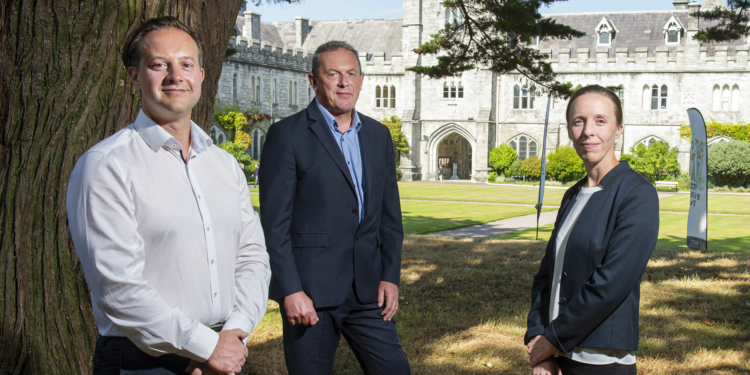A new Long COVID study from APC Microbiome Ireland, a world-leading SFI Research Centre based at University College Cork (UCC), finds that biomarkers of immune system activation are linked with impaired metabolism in Long COVID patients, which helps scientists understand the pathobiology of SARS-CoV-2 infection and associated long-term consequences.
The research led by Prof. Liam O’Mahony and first authored by Dr. Corinna Sadlier, published this week in the international scientific journal “Allergy”, shows that the levels of multiple biomarkers are altered in serum from patients with Long COVID, even nine months after the initial infection with SARS-CoV-2. Over 1,000 molecules were measured in patient serum, and a subset of these molecules were shown to be at different levels in patients compared to healthy volunteers. These differences indicate an ongoing activation of the immune system, which were coupled with differences in molecules generated during metabolism. These differences in metabolism (e.g. decreased serotonin levels) give us some hints at what might be underpinning long term symptoms such as fatigue and brain fog. Overall the study findings identify novel mechanistic and potential diagnostic markers as well as potential therapeutic targets in Long COVID patients.
Prof. Liam O’Mahony, a Principal Investigator in APC Microbiome Ireland and a Professor of Immunology at UCC’s Dept of Medicine and School of Microbiology says “this study provides further evidence that SARS-CoV-2 infection can impact immune and metabolic systems for a long time following elimination of the virus. These new findings provide us with definitive targets to be further examined in helping us better understand why some people get Long COVID, and represent a first step in developing potential new targets for diagnosis and therapy.”
Dr. Corinna Sadlier, Consultant in Infectious Diseases at Cork University Hospital says: Patients with Long COVID present with prolonged multisystem symptoms which can impact quality of life, affect ability to work and cause significant disability for some. As scientific and clinical knowledge evolves there is a pressing need to focus research investment and coordinate multidisciplinary specialist support services to improve outcomes for these patients.
Prof Paul Ross, Director of APC Microbiome Ireland says: This new APC research highlights the real burden that Long COVID represents to the Irish population and highlights the importance of finding scientific solutions which can tackle the underlying mechanisms that are causing such diverse and debilitating symptoms
Professor John F. Cryan, Vice President for Research & Innovation, University College Cork says: Long COVID is a new issue for our society to contemplate. We are proud to have exceptional researchers here at UCC who can respond to new challenges in such an agile manner to support targeted treatments for those living with Long COVID.










